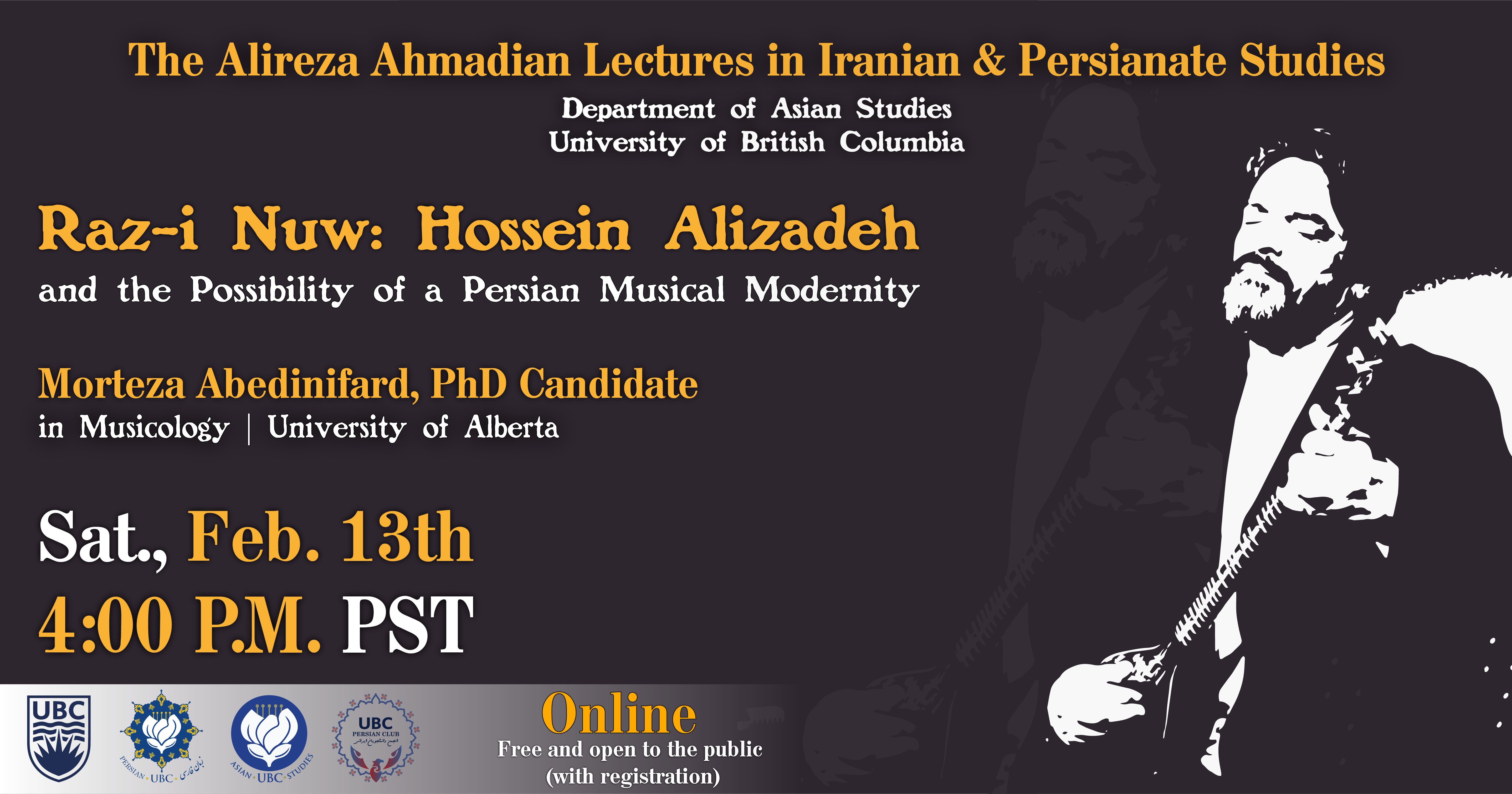

Poster design by Razman Goudarzi
راز نو: حسین علیزاده و امکان یک مدرنیتهٔ موسیقیاییِ ایرانی
سخنران: مرتضی عابدینیفرد، دانشجوی دکتری موسیقیشناسی، دانشگاه آلبرتا
در این نشست، سخنران به آلبوم «راز نو» اثر حسین علیزاده می پردازد که علیرغم به چالش کشیدن رویکردهای مرسوم موسیقی ایرانی، ویژگیهای ساختاری اساسی این سنت موسیقایی را حفظ میکند. یکی از ویژگیهای این آلبوم، تلاشهای موفق علیزاده در برخی از قطعات آوازی است برای برقراری رابطهای واقعگرایانه بین موسیقی و «معنا» در متن. به عبارت دیگر، موسیقی علیزاده از «ظرفیتهای» متعارف موسیقی ایرانی فراتر میرود و فعالانه درگیر واقعیت متن میشود، بدون اینکه ساختارهای فرهنگ موسیقی ایرانی را بهصورت اساسی برهم بزند.
The event recording is now available:
Presented in English with subtitles.
Presenter: Morteza Abedinifard (PhD Candidate in Musicology, University of Alberta).
Hossein Alizadeh’s musical novelties are distinct from other contemporary composers in an important manner: they seek to activate certain potentialities within Persian music in order to create fresh sonorities and a novel relationship between sound and text. An example of these innovational attempts is Alizadeh’s album Raz-i Nuw (Novel Mystery), a thoroughly original approach to polyphony in Persian music, which he composed for four vocal lines, two percussions, and a melodic instrument (the “Tar” and a modified “Tanbour” in different sections). In my presentation, I will focus on certain novelistic aspects of this musical offering that have decidedly challenged conventional approaches to Persian music while at the same time preserved some significant structural characteristics of this musical traditions. In particular, I will underline and examine Alizadeh’s efforts in certain vocal pieces in this album where he has succeeded in constructing a realistic relationship between music and “meaning” in the text. I argue that this new approach to text-setting, although not entirely unprecedented among Persian composers, is particularly interesting in Alizadeh’s music for an important reason: it shapes its musical realism through an inherently local, i.e., Persian, approach to musical materials. In other words, Alizadeh’s music goes beyond the conventional “capacities” of Persian music and actively engages in the reality of the text, without fundamentally disrupting the structures of Persian musical culture.
Morteza Abedinifard is currently a PhD Candidate in Musicology at the University of Alberta. Morteza’s research interests include music philosophy, music history, and conceptual history. He has been playing the Setar for over 15 years.
Should you have any questions, please contact the Department of Asian Studies at Asian.Studies@ubc.ca.